第49章 LIBRARY MEMBERSHIP AS A CIVIC FORCE(4)
3.In dealing with large numbers of children of foreign parentage it is evident that we need to define their relationship to the library more clearly than we have done as yet.Quite frequently they do not distinguish between the building and the books and refer to the latter as "taking libraries".Now "taking a library"home is a very different matter from playing a part in the life of a civic institution and the parents as well as the boys and girls are quick to feel a difference which they are not always able to express in words.Quite early in my experience this was brought home to me by a visit from the mother of a Jewish boy who had been coming to the children's room for about a year.She came on a busy Saturday afternoon and after looking about the room seated herself near the desk while the boy selected his books.As Leopold always tested the interest of several books before committing himself to a choice the visit lasted the entire afternoon.When they were ready to go she explained why she had come.She had been curious to discover for herself,she said,what it was Leopold got from the Library that made him so much easier to get on with at home.He had grown more thoughtful of his younger brothers and sisters,more careful of his books and other belongings and more considerate of his mother."I wouldn't have him know the difference I see,"she continued,"but he told me you were always asking him to bring me here and I made up my mind to come and see for myself and I have.
"These children are learning how to BEHAVE in PUBLIC as well as how to choose good books and I think it comes from the feeling they have of belonging to the Library,and being treated in the way they like,whether they are as young as my Simon,who is six years old,or as old as Leopold,who will be fourteen next month.
If they were all boys of Leopold's age it would be the same as it is at school;but having the younger ones here makes it more as it is at home."Should it not be the plan and purpose of a children's room to make every boy and girl feel at home there from the moment of signing an application blank?Forms of application blanks and the manner of registration differ in nearly every library.Whatever form is used,personal explanation is always essential and it does not seem worth while to advocate a simplified form for the use of children.I believe there are very decided advantages in a system of registration which requires the children to write their own names in a book.The impression made upon their memories is distinctly different and more binding than that made by writing the name on a slip of paper and has frequently been of great service in cases of discipline as the signature is headed by a reminder of obligations:
"When I write my name in this book I promise to take good care of all the books I read in the Library and of those I take home and to obey the rules of the Library."Such a method of registration is not impractical,even in a large library provided the work is carefully planned to admit of it.
Recent inquiries and investigation show very convincingly that a large proportion of parents,both foreign born and American,and a considerable number of educators,social workers and persons connected with libraries in England and in this country,have exceedingly hazy ideas respecting the work public libraries are doing for children.The issue of an admirable illustrated hand book on "The Work of the Cleveland public library with children"and the means used to reach them,should make clear to the latter whatever has seemed vague or indefinite in the work.
But there are many parents in large cities and in manufacturing towns,who cannot be induced to visit libraries and see for themselves as Leopold's mother did,and they are frequently averse to having their children go to a place they know nothing about,believing that they are being drawn away from their school tasks by the mere reading of story books.How is it possible to stimulate their curiosity and interest to the point of making a Library seem desirable and even necessary in the education of their children to become citizens and wage earners?Printed explanations and rules issued by libraries are either not read or not understood by the majority of persons to whom they are addressed.There is something very deadening to the person of average intelligence about most printed explanations of library work.Pictures which bring the work before people from the human side might be more successful and I wish to submit an outline for a pictorial folder designed to accompany an application blank to the home of an Italian child.